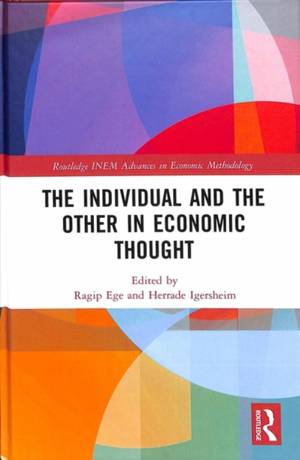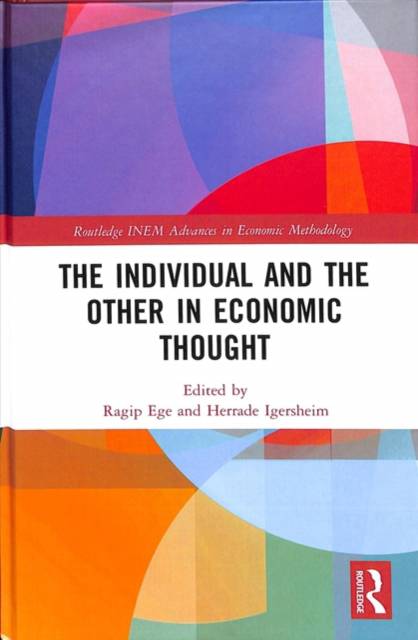
- Retrait gratuit dans votre magasin Club
- 7.000.000 titres dans notre catalogue
- Payer en toute sécurité
- Toujours un magasin près de chez vous
- Retrait gratuit dans votre magasin Club
- 7.000.000 titres dans notre catalogue
- Payer en toute sécurité
- Toujours un magasin près de chez vous
The Individual and the Other in Economic Thought
Description
The Philosophy of Economics primarily considers the economic agent as a moral subject. Economics, however, has long overlooked the agent's moral - that is to say, reasonable - dimension, to focus instead on the strictly rational. This volume seeks to address this neglected topic through exploring the Individual and the Other.
The economic agent refers to "himself" (herself) in terms of his desire and passions, yet also refers to others besides himself. For the rational economic agent, what is the nature of this relationship with the Other? Should it not be understood as undergoing a transformation once we come to consider the economic agent as a reasonable being? Through what process does the Other pass from being an instrument at the disposal of a rational agent to being an end in itself for a moral subject? In other words, how does another become "an Other"? These questions are behind the re-examination of certain fundamental notions which takes place in this book, an examination which involves a re-reading of certain great authors. With contributions from authors around the world, this work is divided into three main parts. The first deals with individuals from the history of economic thought such as Adam Smith, Karl Marx and Hannah Arendt; this is then followed by a thematic section in which the concepts of recognition and subjectivity are questioned in a market context. Finally, the third part offers an analysis of the issue of "the Individual and the Other" in different fields of the recent economic analysis including game theory, decision theory or social choice.
The Individual and the Other in Economic Thought
aims to help the reader better understand how the relationship between the Individual and the Other has been conceived, conceptualized and framed in economic analysis. It will be of great use to graduate students, scholars and any reader interested in this crucial issue.Spécifications
Parties prenantes
- Editeur:
Contenu
- Nombre de pages :
- 382
- Langue:
- Anglais
- Collection :
Caractéristiques
- EAN:
- 9781138080706
- Date de parution :
- 30-07-18
- Format:
- Livre relié
- Format numérique:
- Genaaid
- Dimensions :
- 160 mm x 236 mm
- Poids :
- 703 g






